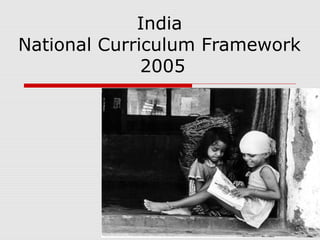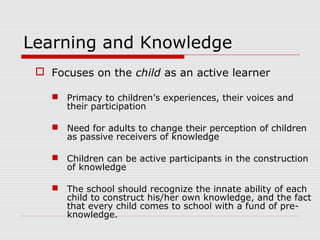The National Curriculum Framework 2005 document outlines the process and perspectives for reforming India's national curriculum. It established national and focus groups comprising experts to prepare position papers on various curricular areas. It emphasizes adopting a child-centered approach focused on active, participatory learning over rote memorization. It recommends reforms across subject areas like language, mathematics, science and social sciences to reduce stress and make education more relevant and meaningful. It also stresses the importance of school environment, teacher training, and systemic reforms like flexible exams.

































